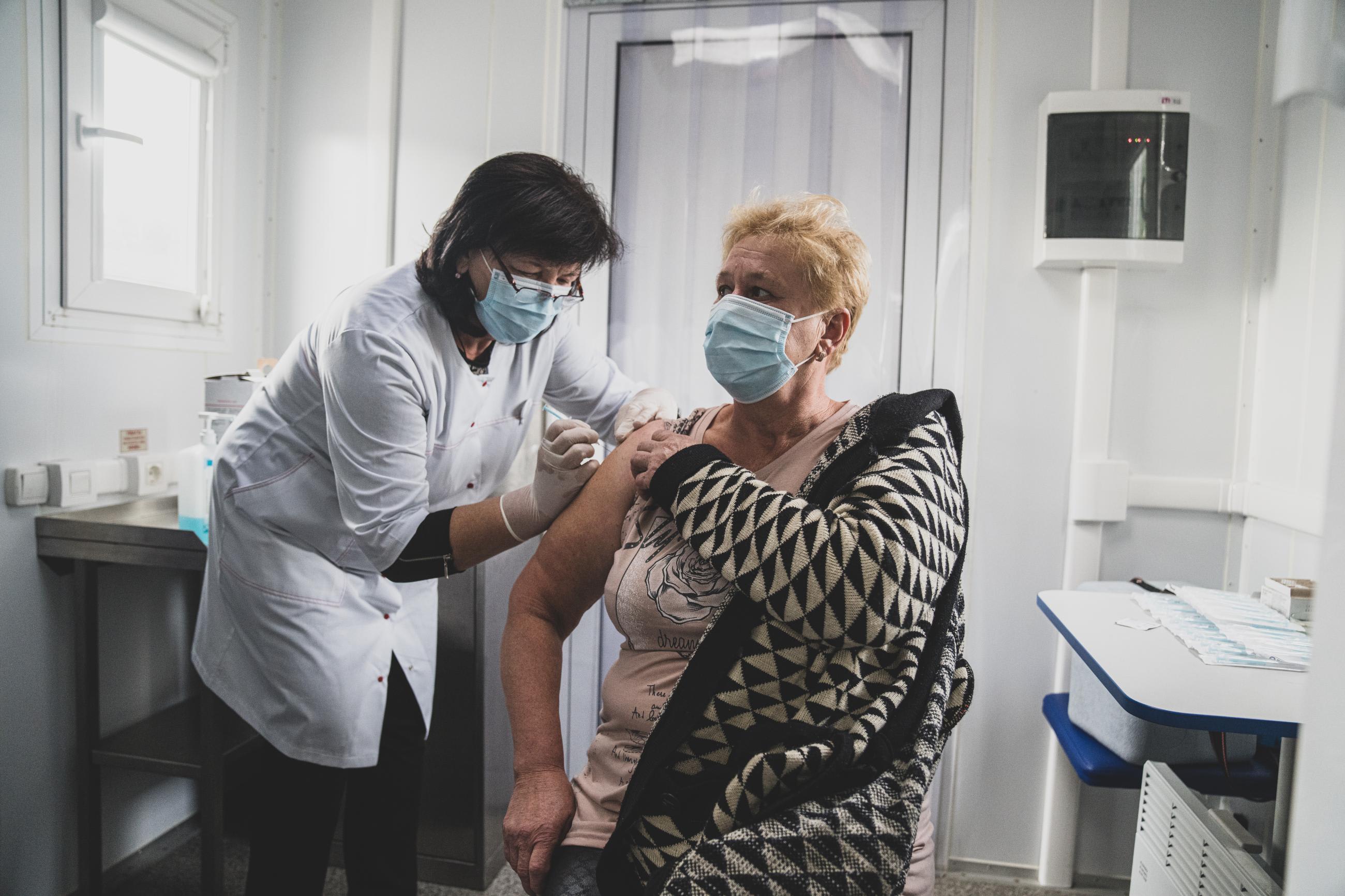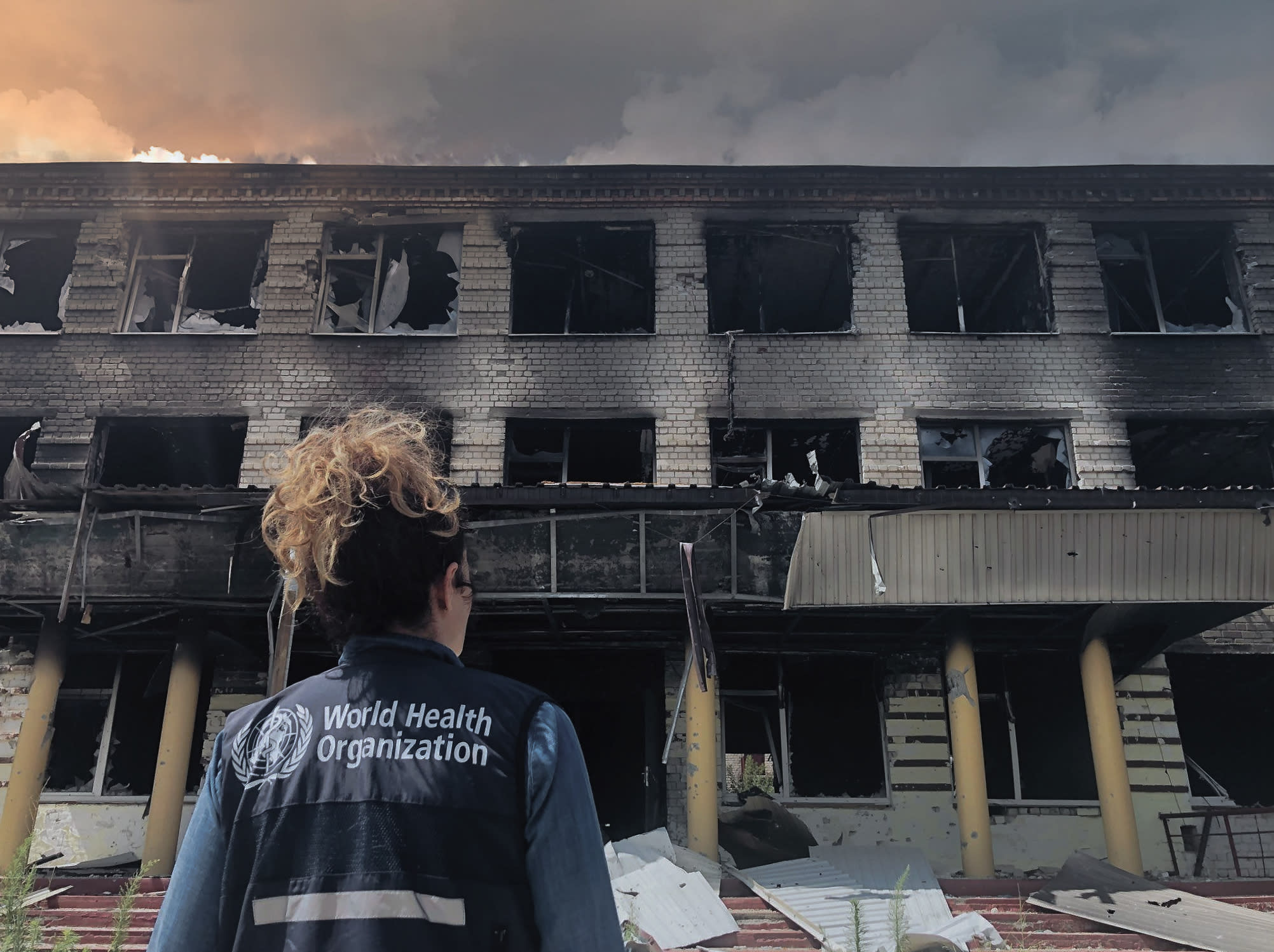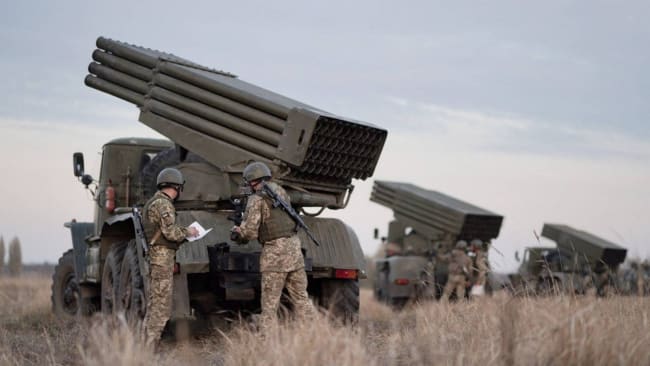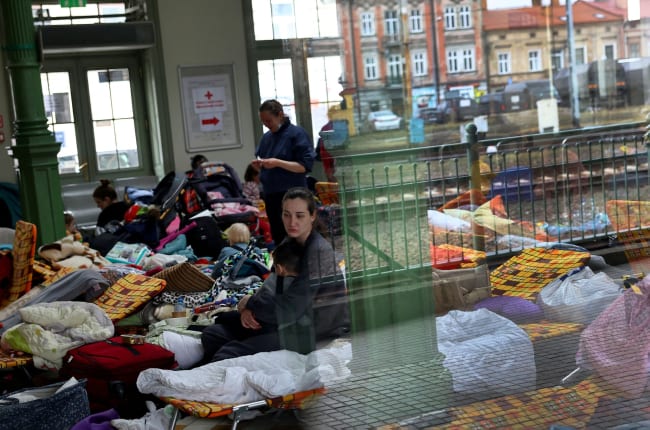President Joe Biden signed a foreign aid package on Wednesday that includes more than $9 billion in humanitarian support to be used in Israel, Taiwan, and Ukraine.
Public health experts including a senior official from the World Health Organization (WHO), however, maintain that the legislation could leave Ukraine vulnerable to infectious disease outbreaks that could in turn both undermine the work done to stave off the Russian invasion and hinder postwar recovery.
Prior to Russia's invasion in February 2022, Ukraine struggled with low vaccination rates, leading to outbreaks of preventable diseases including measles and polio. Public health experts fear the heightened conflict is further impeding vaccination efforts. Vaccine coverage for measles, diphtheria, tetanus, polio, hepatitis B, and haemophilus influenzae type b dropped in 2022 to the lowest marks seen in years, according to WHO data.
Public health experts say the heightened conflict is making outbreaks more likely in Ukraine and elsewhere. Others point to concerns over antimicrobial resistance given the number of people with war wounds and potential outbreaks of HIV and tuberculosis among Ukrainians and displaced refugees.
Yet the new humanitarian aid does not include earmarked funds to fight infectious diseases or any specific medical assistance. This comes despite some lawmakers, including Senator Sherrod Brown (D-OH), having called for childhood vaccines to be a part of humanitarian aid.
"If you're doing humanitarian assistance right, you don't exclude children," Brown said last October. "First of all, you make sure that children are taken care of, and a big part of that is vaccines. In that humanitarian aid, you can bet will be assistance to make sure that there is there is care for children and there are vaccines as there should be."
When you have a disease outbreak, especially at a time when you have daily missiles and drones and air alerts, then [handling it is] more difficult
Jarno Habicht, World Health Organization, Ukraine
Jarno Habicht, the head of the World Health Organization's Ukraine office, says that constant attacks from Russia and the resulting displacement of millions of children has only made the situation worse by undermining vaccination efforts.
"We need to be ready for further disease outbreaks," Habicht says. "When you have a disease outbreak, especially at a time when you have daily missiles and drones and air alerts, then [handling it is] more difficult."
Representative Rosa DeLauro (D-CT), ranking member of the House Appropriations Committee, says that providing humanitarian support is essential given the risks facing populations in countries from Ukraine and Israel to Sudan and Myanmar.
She argues, though, that earmarks are the wrong approach.
"There needs to be flexibility in the disposition of humanitarian aid, which is one of the reasons why they're not line items for this country or that country," she says. "It allows for the flexibility to be able to get money where it's needed."
Brown had agreed on this point as well. "I don't know if it needs to be specific in the law," he said late in 2023.
Habicht agrees that the new bill is a milestone given Ukraine's high humanitarian needs amid attacks on health care and civilians. He says, though, that the United States needs to prioritize public health, including preventative measures against infectious disease, throughout the war to ensure the country's short- and long-term health and success.
"The United States has made a huge impact for millions of Ukrainians through the health sector," but needs to "find the courage and stamina to keep it going, because this will not be a sprint; it will not be a marathon; it will be a triathlon and a long one," he says.
DeLauro agrees that preventative measures against infectious diseases are an issue of national security, but that vaccinations and other countermeasures are difficult to prioritize against the threat of famine.
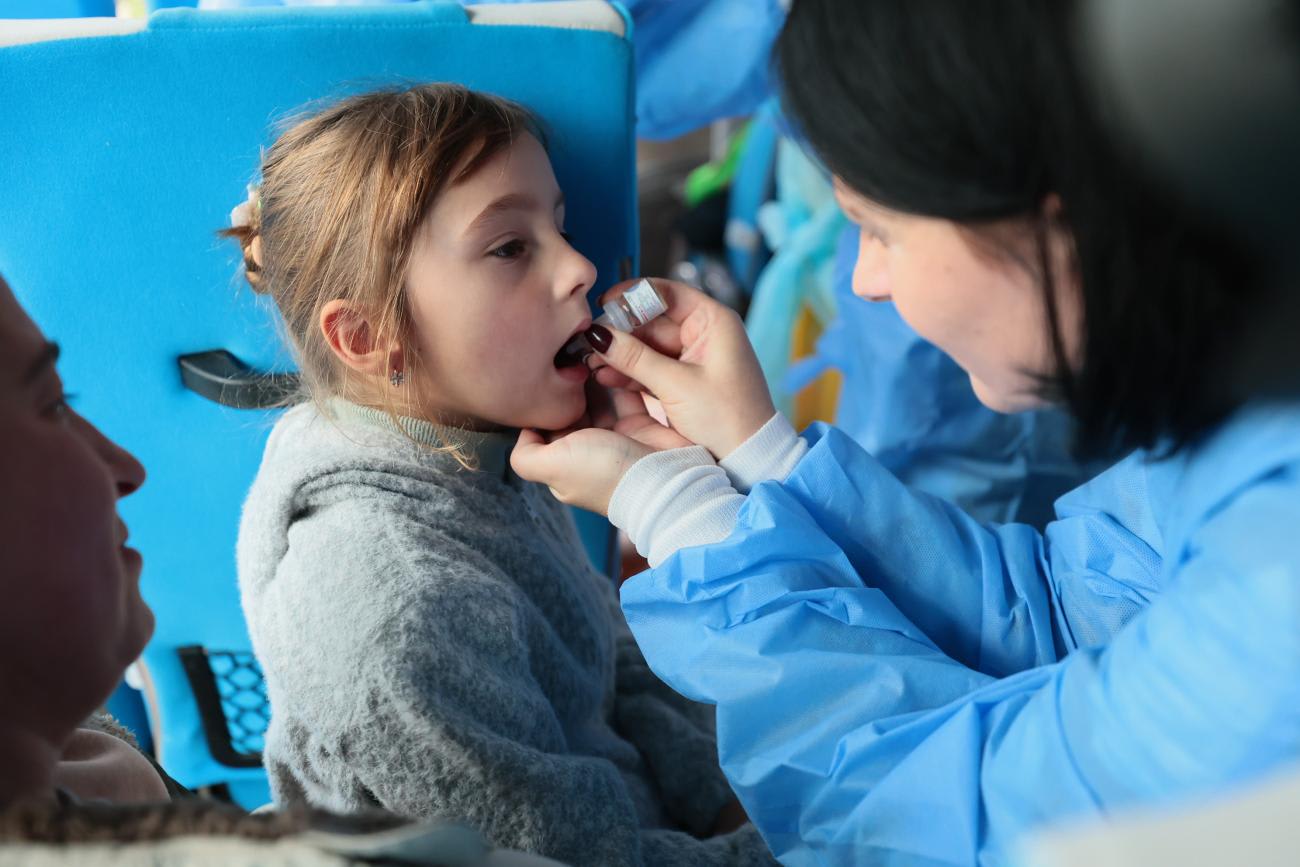
"In some of the conflict areas that I laid out where it's famine, what do you do first, you try to keep people alive, and you get them food aid," DeLauro says. "If you listen to Ambassador Cindy McCain with the World Food Program, she says Gaza is on the verge of famine."
Two Years of Missed Opportunities
Infectious disease expert William Pewen, who has worked in public health for more than 20 years, including as senior health policy advisor to former Senator Olympia Snowe (R-ME) and director of the Marshall University public health graduate program, says that although providing food aid is important, doing so to the exclusion of other aspects of public health is the wrong approach.
His analysis, which has examined the reasons for epidemics in Ukraine, found that low vaccination rates, among several other factors, have contributed to several epidemics since 1991, including more than 17,000 infected with diphtheria in the 1990s and more than 115,000 infected with measles from 2017 to 2019. He notes that epidemics during a major conflict could be of even greater magnitude.
"War requires that one prioritizes," Pewen says. "Yet two years into Europe's largest conflict in generations, many of Ukraine's critical medical needs remain unaddressed, frequently relying on crowdsourced efforts."
Such group funded efforts include the work of the Cleveland Maidan Association, a Cleveland-based humanitarian organization, which has been sending millions of dollars of medical items to Ukraine since the invasion began. Cleveland Maidan recently started a $2.1 million project in partnership with Frontline Medical Ukraine to train 27,000 Ukrainian combat medics.
Pewen, who has worked to address Ukraine's wartime infectious disease threats since June 2022, says that failing to specifically allocate funds duplicate a flawed strategy.
Yet two years into Europe's largest conflict in generations, many of Ukraine's critical medical needs remain unaddressed
William Pewen, infectious disease expert
"Our Ukraine supplementals continue to fail to support one of the most obvious and basic needs in a conflict—the medical care of both troops and civilians," Pewen says. "This isn't flexibility: it's neglect."
His work helped lead to a proposal to provide the Ukraine Ministry of Health with diagnostics, therapeutics, and vaccines to combat infectious disease. In addition to aiding in disease response, the initiative could help to remedy a severe immunization deficit in children under 15.
That plan would have come at a relatively small cost of $98 million over four years, Pewen says, or approximately 0.2% the value of U.S. economic and humanitarian assistance provided to Ukraine since the 2022 invasion. Pewen says that lawmakers showed no interest in the proposal.
Habicht adds that letting measles get out of control would not only harm Ukrainians, especially children, but also undermine the country's long-term future. He says the health needs are enormous given that Russia's attacks have continued for a decade, starting when it annexed Crimea in 2014.
"Every disruption, including outbreaks and infectious diseases, will have an impact on fast recovery because we know that if children are unhealthy for various reasons, it could be vaccine-preventable disease, their education will suffer," Habicht says. "That has long-term consequences to the society, development and growth, and child development as well."
Roman Sheremeta, an associate professor of economics at the Weatherhead School of Management at Case Western Reserve University in Cleveland, says that persistent disease outbreaks could also undermine Ukraine's ability to rebuild.
"Rebuilding is going to take a workforce; it will take economic resources. If this disease or any other disease is not put under control, [it] will undermine those efforts in the long term," Sheremeta says.
Habicht agrees: "Health is a part of human capital."
